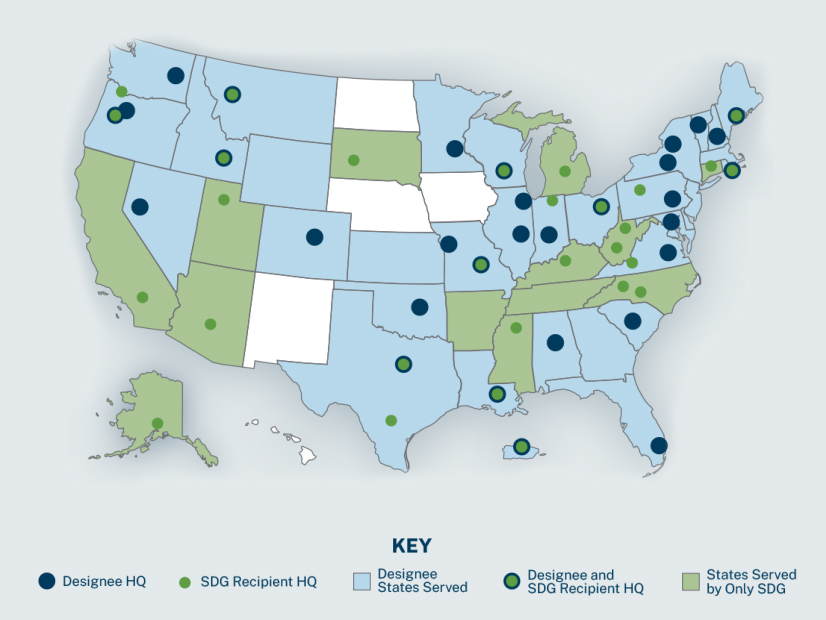The White House and the Department of Commerce on Monday announced the designation of 31 “Tech Hubs” around the country, including a handful focused on the energy transition.
It marks the first phase of the Tech Hubs program, which is designed to drive regional innovation and job creation by strengthening a region’s capacity to manufacture, commercialize and deploy technology that will advance U.S. competitiveness. The 31 were picked from nearly 400 applications and are each eligible for up to $75 million in grants.
“Our Tech Hubs Program is fundamental to that mission and will supercharge innovation across the nation by spurring cutting-edge technological investments and creating 21st century job opportunities in people’s backyards,” Commerce Secretary Gina Raimondo said. “Each of these consortia will help us ensure the industries of the future — and their good-paying jobs — start, grow and remain in the United States.”
The program was authorized by the CHIPS and Science Act, which was signed into law in August 2020. The 31 hubs focus on a range of industries including semiconductors, clean energy, critical minerals, biotechnology, precision medicine, artificial intelligence and quantum computing.
The energy-related Tech Hubs include:
-
- The Gulf Louisiana Offshore Wind (GLOW) Propeller, meant to grow a domestic offshore wind supply chain using Louisiana’s existing energy infrastructure, ports and shipbuilding network;
- The Intermountain-West Nuclear Energy Tech Hub, which aims to position Idaho and Wyoming as global leaders in small modular reactors and advanced nuclear energy to contribute to a clean energy future;
- The South Carolina Nexus for Advanced Resilient Energy, led by that state’s Department of Commerce and including Georgia, which aims to be a global leader in advanced energy by developing, testing and deploying exportable electricity technologies;
- The South Florida Climate Resilience Tech Hub, led by the Miami Dade County Innovation and Economic Development Office, which aims to advance its global leadership in sustainable and resilient infrastructure solutions for the climate crisis; and
- The New Energy New York (NENY) Battery Tech Hub, based out of the State University of New York Binghamton and meant to bolster battery technology development and manufacturing across the value chain.
Two others are focused on the country’s critical minerals supply chain. The Nevada Lithium Batteries and Other EV Material Loop is led by the University of Nevada, Reno, and it aims to build a self-sustaining and competitive lithium lifecycle cluster, spanning extraction, processing, manufacturing and recycling.
The University of Missouri is leading the Critical Minerals and Materials for Advanced Energy Tech Hub, which is aiming to position south-central Missouri as a global leader in critical minerals processing to provide the materials needed to support battery technology.


